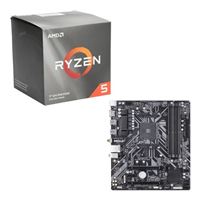I was out of the PC building community since early 2022 and have just rejoined it. I can't believe how massive the changes have been.
1. Graphics cards' prices returning to normal
2. PCIe 5.0
3. DDR5
4. 4nm
It's actually crazy.
I planned to buy a PC in 2022, but cancelled it. My current PC has a GTX 1070. I think it will be great to have an upgrade at any time around 2024, but I'm not sure.
People like to "futureproof" their build. However, the problem is that the conventional idea of futureproofing is too shallow. "Buy the most powerful CPU. Buy the most powerful GPU. Buy the most GB of RAM. Buy the best motherboard."
There are problems with this mindset:
1. Some parts are just not capable of being futureproofed or must be futureproofed at the right time. The most obvious example is water cooling. 3 years is the maximum.
Another example is SSD. Let's turn back time to around PCIe 3.0 SSD. Let's say you bought the fastest PCIe 3.0 SSD. Turns out, a year later, PCIe 4.0 SSDs arrived and curbstomped your SSD.
ANOTHER example is CPU. Let's say you buy a 16-core CPU for futureproofing purposes. Turns out, the 16-core CPU that you buy is a dual-chiplet CPU and one gen later, a mono-chiplet 16-core CPU gets introduced, curbstomping yours.
2. Some parts can be overkill.
Sure, your parts are by no means outdated. They can still perform fine. However, each slip definitely makes the system take a hit in the futureproofing aspect, which defeats the whole reason you futureproof the build in the first place.
How do you futureproof your build, if you do?
1. Graphics cards' prices returning to normal
2. PCIe 5.0
3. DDR5
4. 4nm
It's actually crazy.
I planned to buy a PC in 2022, but cancelled it. My current PC has a GTX 1070. I think it will be great to have an upgrade at any time around 2024, but I'm not sure.
People like to "futureproof" their build. However, the problem is that the conventional idea of futureproofing is too shallow. "Buy the most powerful CPU. Buy the most powerful GPU. Buy the most GB of RAM. Buy the best motherboard."
There are problems with this mindset:
1. Some parts are just not capable of being futureproofed or must be futureproofed at the right time. The most obvious example is water cooling. 3 years is the maximum.
Another example is SSD. Let's turn back time to around PCIe 3.0 SSD. Let's say you bought the fastest PCIe 3.0 SSD. Turns out, a year later, PCIe 4.0 SSDs arrived and curbstomped your SSD.
ANOTHER example is CPU. Let's say you buy a 16-core CPU for futureproofing purposes. Turns out, the 16-core CPU that you buy is a dual-chiplet CPU and one gen later, a mono-chiplet 16-core CPU gets introduced, curbstomping yours.
2. Some parts can be overkill.
Sure, your parts are by no means outdated. They can still perform fine. However, each slip definitely makes the system take a hit in the futureproofing aspect, which defeats the whole reason you futureproof the build in the first place.
How do you futureproof your build, if you do?


